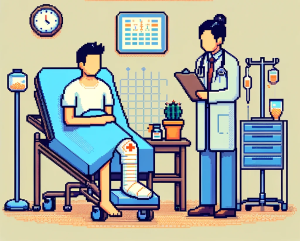
The Role of National Income and Vaccine Confidence in COVID-19 Vaccination Rates
The COVID-19 pandemic presented a litmus test for public health systems worldwide, challenging them to distribute vaccines efficiently and equitably. In a recent pivotal study published in PLOS ONE, researchers have delved into how national income and public trust in vaccine safety shaped vaccine uptake across 145 countries. Their findings have profound implications for public health professionals striving to enhance vaccine coverage, especially in the face of future pandemics.
Income and Confidence as Determinants
The paper, entitled “The impact of national income and vaccine hesitancy on country-level COVID-19 vaccine uptake” (PLOS ONE, 2023), explores the dynamics influencing vaccination rates from the initial global vaccine rollout in December 2020 through the following 24 months. Researchers established a correlation between per capita GDP and vaccine uptake; countries with higher national income had significantly higher vaccination rates one year into the global rollout. Interestingly, this gradient softened over time, potentially indicating an increased vaccine supply and international donations to lower-income countries.
Yet, it wasn’t just national wealth impacting these figures. Vaccine hesitancy, particularly mistrust in vaccine safety, played a surprisingly larger role in low-income countries. This stands in stark contrast to the initial hypothesis that hesitancy would be a more significant barrier in high-income nations where vaccine availability was presumed sufficient.
Implications for Public Health Practitioners
For professionals in public health, the study underlines several crucial points. Firstly, it confirms the importance of fostering public trust in vaccines. This is especially pivotal in lower-income countries where hesitancy has a more pronounced effect on uptake. Health campaigns focused on education, and trust-building are as critical as ensuring vaccine availability.
Secondly, the study highlights the need for a nuanced approach that considers both logistical distribution challenges and sociocultural factors that influence public perception. This calls for an integrative strategy that combines resource allocation with community engagement and education.
Lastly, the research emphasizes the necessity for robust infrastructural support to implement national vaccination plans effectively. This goes beyond vaccine provision to logistics, data management, and local healthcare capacities.
A Call to Action
Public health professionals are tasked not only with disease control but also with managing the complex socio-economic and behavioral factors that influence health outcomes. The insights from this study provide a roadmap for addressing these challenges, particularly in preparing for future pandemics. Enhancing vaccine confidence and ensuring equitable distribution must be at the heart of global health strategies.
As the world continues to navigate the repercussions of the pandemic, this study serves as a crucial reminder of the multi-faceted nature of public health challenges. By addressing the intertwined factors of income and vaccine confidence, public health workers can forge a more resilient global health infrastructure.
Stay on Top of Public Health with our Weekly Newsletter!
Sign up here!



